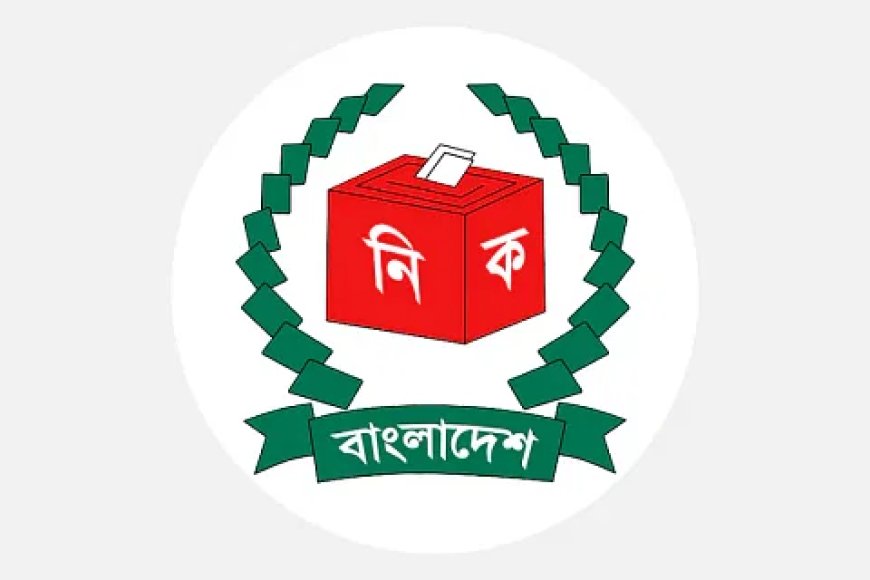Election System Reform: Accountability of the Election Commission Under Review
Based on past experiences, the Election System Reform Commission believes that a clear accountability mechanism should be established for the Election Commission (EC).

The Election System Reform Commission is currently exploring ways to hold the Election Commission (EC) accountable in cases of electoral misconduct.
The commission is considering the introduction of legal provisions that would allow action to be taken against the EC following investigations into such incidents.
Sources within the reform commission have confirmed this.
The EC is constitutionally an independent body, with the president responsible for appointing the chief election commissioner and other commissioners. However, stakeholders involved in the election process argue that the impact of establishing accountability must be weighed against the potential risk to the EC’s independence. Some, however, believe that a system of accountability is essential to prevent future electoral fraud. The EC is constitutionally tasked with conducting national parliamentary and presidential elections, overseeing the return officers who handle the elections. National election-related laws, including the Representation of the People Order (RPO), the Election Officials (Special Provisions) Act, and other related provisions, include penalties for election officers, candidates, or their supporters if they engage in criminal activities. These individuals are held accountable to the EC. However, there are no clear provisions for holding the EC accountable if it is involved in criminal activity. The current constitution provides a process for the removal of election commissioners, stating that they can only be removed in the same manner and for the same reasons as a Supreme Court judge. This power is exercised through the Supreme Judicial Council, a role previously held by parliament.
According to sources within the Election System Reform Commission, based on the experiences of the last three national elections, there is a strong belief that a clear accountability framework should be established for the EC, despite its constitutional status. The three controversial elections—the unilateral 2014 11th Parliamentary election, the “nighttime vote” of 2018, and the disputed elections of January this year—were overseen by three different election commissions. These commissions had taken an oath to conduct free, fair, and neutral elections, but they were accused of violating this oath by overseeing contentious elections. The commission led by KM Nurul Huda, in particular, faced serious allegations of misconduct and financial irregularities in national elections, prompting public calls for an investigation and the formation of a Supreme Judicial Council. However, no action has been taken against the commissions responsible for these controversial elections.
"No one is above accountability," the reform commission emphasizes. They are considering adding a provision to the RPO that would make election commissioners accountable for electoral crimes, allowing investigations and actions to be taken if serious allegations arise. The commission is still deliberating on the procedure for such accountability, though no final decision has been made. Badiul Alam Majumdar, the head of the Election System Reform Commission, stated, "In a democratic country, no one is above accountability. Constitutionally responsible individuals must uphold the constitution. If they violate their oath, they should be held accountable."
The Election System Reform Commission was formed by the interim government on October 3, with Badiul Alam as its head, to recommend reforms. The commission has been consulting with stakeholders, gathering public opinions through digital platforms, and collecting written proposals from political parties. They have also reviewed all relevant electoral laws. The final report is still under preparation, and it is expected to be submitted to the government by December 31, though it has not yet been finalized.
Reactions to the proposal
The BNP has not yet commented on the reform commission's proposal to hold the EC accountable. Party Standing Committee member Amir Khasru Mahmud Chowdhury told Prothom Alo that they will comment once the proposal is presented.
However, Zunayed Saki, a leader of the Ganatantra Mancha and chief coordinator of the Ganosamhati Andolon, supports the idea of holding the election commission accountable. He told Prothom Alo, "Election commissions have been allowed to continue despite holding fake, fraudulent, and disenfranchising elections. To prevent such commissions from escaping accountability in the future, there should be a mechanism to hold the EC accountable, and we support such a system."
Consideration of Expanding the EC's Powers
In addition to holding the election commission accountable, there are also proposals to expand its powers. The reform commission believes the EC’s current powers are adequate for ensuring fair elections, provided they are properly applied. However, some aspects of the RPO may need further clarification. The RPO currently grants certain powers to the EC, but the High Court has also ruled that the EC holds "inherent powers" outside of those explicitly mentioned in the law.
There is now a proposal to formally include these inherent powers in the legal framework. Under the commission led by Kazi Habibul Awal, an amendment to the RPO limited the EC’s powers to cancel elections, restricting them to only announcing cancellations on election day. The previous law allowed the EC to cancel elections at any time after the election schedule was announced if the environment was deemed unfavorable. There are proposals to revert to the previous version of the law. Additionally, under current law, complaints related to certain electoral offenses must be filed within six months of the election. The reform commission is considering extending or removing this time limit.
Former election commissioner and advisor to the interim government’s ministries of shipping and labor and employment, M Sakhawat Hossain, told Prothom Alo, "It is not that there is absolutely no place for holding the EC accountable. The EC is constitutionally independent, and the Supreme Court is the guardian of the constitution. With a few exceptions, anyone can challenge EC decisions in a higher court."
"Whether the Election System Reform Commission is directly considering provisions for accountability is unclear. However, if a committee is created to establish accountability, we must also consider whether it would undermine the EC’s ability to work independently," he added.
What's Your Reaction?





















































































